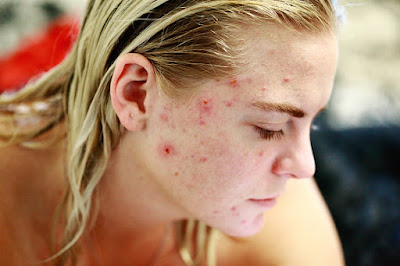10 Effective Tips for Managing Acne
Acne is a common skin condition that affects people of all ages, but it can be particularly frustrating for those who suffer from chronic or severe acne. While there are many treatments available to manage acne, there are also several lifestyle changes that can help prevent and minimize breakouts. In this article, we will explore ten effective tips for managing acne.
1. Cleansing
One of the most important steps in managing acne is keeping your skin clean. It's essential to wash your face twice a day, gently removing any dirt, oils, and makeup that may build upon your skin over time. Make sure to use a mild, non-comedogenic cleanser specifically formulated for acne-prone skin.
2. Exfoliation
Exfoliating your skin regularly can help remove dead skin cells, unclog pores, and reduce the appearance of acne scars. However, be careful not to overdo it, as too much exfoliation can irritate your skin and worsen your acne. Once or twice a week should suffice.
3. Moisturizing
Many people with acne think they should avoid moisturizing their skin, but that's not true. Moisturizing helps keep your skin hydrated and healthy, and it doesn't cause acne. Look for oil-free and non-comedogenic moisturizers that won't clog pores.
4. Diet
Your diet can have a significant impact on your skin health. Certain foods, such as dairy, sugar, and refined carbohydrates, can trigger or worsen acne. On the other hand, consuming more fruits and vegetables, whole grains, lean proteins, and healthy fats can help reduce inflammation and promote clear skin.
5. Hydration
Drinking plenty of water throughout the day can help flush out toxins and impurities from your body, which can improve your skin's appearance. Aim for at least eight glasses of water per day, or more if you exercise or live in a hot climate.
6. Stress Management
Stress can trigger hormone imbalances that contribute to acne. Therefore, learning how to manage stress is an important part of managing acne. Try relaxation techniques such as deep breathing, meditation, yoga, or regular exercise.
7. Sleep
Getting enough sleep is essential for your overall health and well-being, including your skin. Lack of sleep can disrupt hormone levels and increase inflammation, leading to more breakouts. Aim for at least seven to eight hours of sleep per night.
8. Sun Protection
Sun exposure can worsen acne and lead to hyperpigmentation and scarring. Always wear sunscreen with at least SPF 30 when you're outdoors, even on cloudy days. Look for oil-free and non-comedogenic formulas.
9. Avoid Touching Your Face
Touching your face can transfer bacteria and oil from your hands to your skin, which can clog pores and cause breakouts. Be mindful of touching your face, and use clean hands or tools when applying makeup or skincare products.
10. Consult a Dermatologist
If you have chronic or severe acne that doesn't improve with lifestyle changes or over-the-counter treatments, consider consulting a dermatologist. They can prescribe stronger medications or recommend other treatments, such as laser therapy or chemical peels, to help manage your acne.
In conclusion, managing acne requires a multifaceted approach that includes proper skincare, diet, hydration, stress management, and sun protection. By incorporating these ten tips into your daily routine, you can help prevent and minimize acne breakouts, improve the appearance of your skin, and boost your overall confidence.

